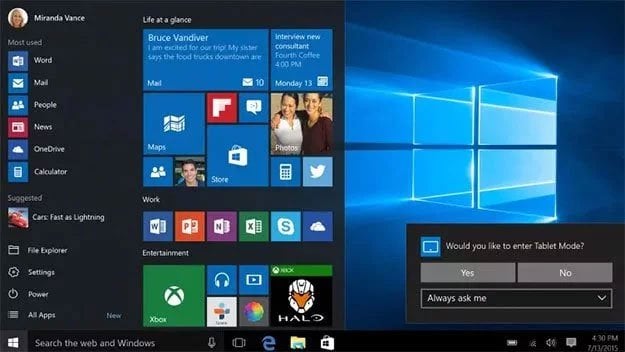Microsoft Patches Windows 10 To Fix Performance Robbing Cumulative Update
If you’re a PC gamer that was sidelined by Microsoft’s last cumulative update for Window 10, we’ve got some good news for you. Last week, we reported on a bug that was discovered in KB4482887 for the Windows 10 October Update. After installing the seemingly harmless update, many gamers began complaining about performance problems and severe mouse lag in popular titles like Destiny 2 and Call of Duty.

- Addresses an issue in Microsoft HoloLens with tracking and device calibration that has affected some users. You may notice improvement 10-15 minutes after installing this update, but we recommend resetting the holograms for best results.
- Addresses an issue that may cause users to receive “Error 1309” while installing or uninstalling certain types of MSI and MSP files.
- Security updates to Microsoft Edge, Internet Explorer, Microsoft Scripting Engine, Windows Shell, Windows App Platform and Frameworks, Windows Kernel-Mode Drivers, Windows Server, Windows Linux, Windows Hyper-V, Windows Datacenter Networking, Windows Storage and Filesystems, Windows Wireless Networking, the Microsoft JET Database Engine, Windows Kernel, Windows, and Windows Fundamentals.
However, despite the fact that Microsoft has fixed a number of Windows 10 ailments, KB4489899 also introduces some new ones as well. Microsoft warns users to be on the lookout for sound dropouts if you have multiple audio devices, and that some may encounter “authentication issues” with Internet Explorer 11. However, if you’re still using Internet Explorer 11, we’re not going to feel sorry for you on that one…

Earlier this week, Microsoft announced that Windows 10 will now have the ability to uninstall problematic updates after they have been installed. “Occasionally, these updates can fail due to incompatibility or issues in new software,” Microsoft explained in a new support document. “If Windows detects this, it will try to resolve the failure by uninstalling recently installed updates. This is only done when all other automatic recovery attempts have been unsuccessful.”
The next major release of Windows 10, reportedly dubbed the April 2019 Update (19H1), should land sometime next month.

